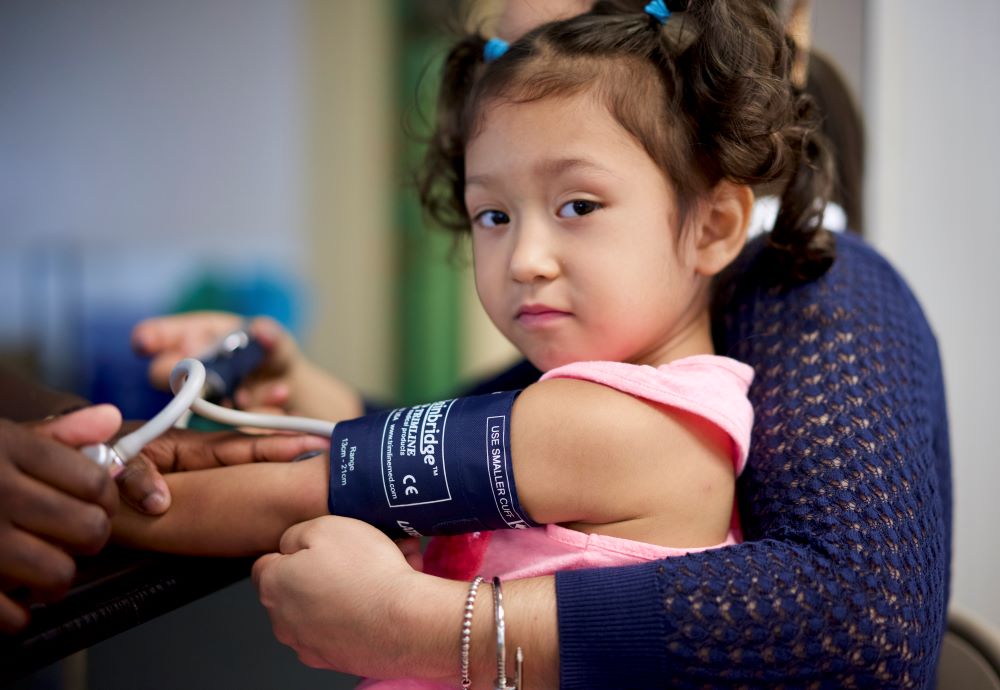 Health managers work to support the health, behavioral health, and safety of children and families. Through promotion, prevention, early identification, and intervention activities, they assist children, families, and staff in laying a foundation for lifelong wellness.
Health managers work to support the health, behavioral health, and safety of children and families. Through promotion, prevention, early identification, and intervention activities, they assist children, families, and staff in laying a foundation for lifelong wellness.
Health Promotion
Health promotion helps people take charge of and improve their own health. Embedded into the fabric of the Head Start services delivery system is a focus on promoting children’s healthy growth and development. The Head Start approach to early education recognizes that healthy children are ready to learn. Services that focus on the “whole child” promote children’s optimal learning and development. Health promotion occurs both with children through the promotion of well-child visits, recommended immunizations, and oral health care, as well as services that address staff and family well-being.
Prevention
Prevention reduces the likelihood of getting sick or injured. Programs use a variety of strategies to support children’s healthy development. A focus on healthy nutrition, physical activity, oral health, social and emotional learning to support mental health, and injury prevention helps to support children’s overall growth and development. Daily routines such as handwashing, brushing teeth, wearing bike helmets, and learning about pedestrian safety help children stay healthy and avoid injuries.
Early Identification
Early identification detects conditions that may negatively affect healthy development. There are specific health conditions and developmental differences that can affect learning. When identified and treated early, children have the best chance for early learning success. Using screening and ongoing assessment, staff identify issues that may influence a child’s readiness for school. Every day, they use what they know about children’s health to notice when a child may look or act differently. Staff share concerns with families and respond to children’s health, mental health, and developmental needs. Timely referrals for evaluation and treatment help children get the support they need.
Intervention
Intervention is the delivery of services to treat health conditions. When children with special health care needs have access to ongoing care, they can make progress in health and learning outcomes. To coordinate treatment and follow up, health providers share information (with the family’s permission) with each other, with families, and with program staff. Health managers maintain a system that tracks referrals and monitors services, including follow-up plans.
Tips and Strategies for Promotion, Prevention, Early Identification, and Intervention Activities
- Use these four principles to plan, design, and implement services that meet the needs of all children.
- Make sure everyone can respond to each child’s individual developmental needs to put children on track for school success.
Read more:
Resource Type: Article
National Centers: Health, Behavioral Health, and Safety
Audience: Directors and Managers
Last Updated: October 30, 2023